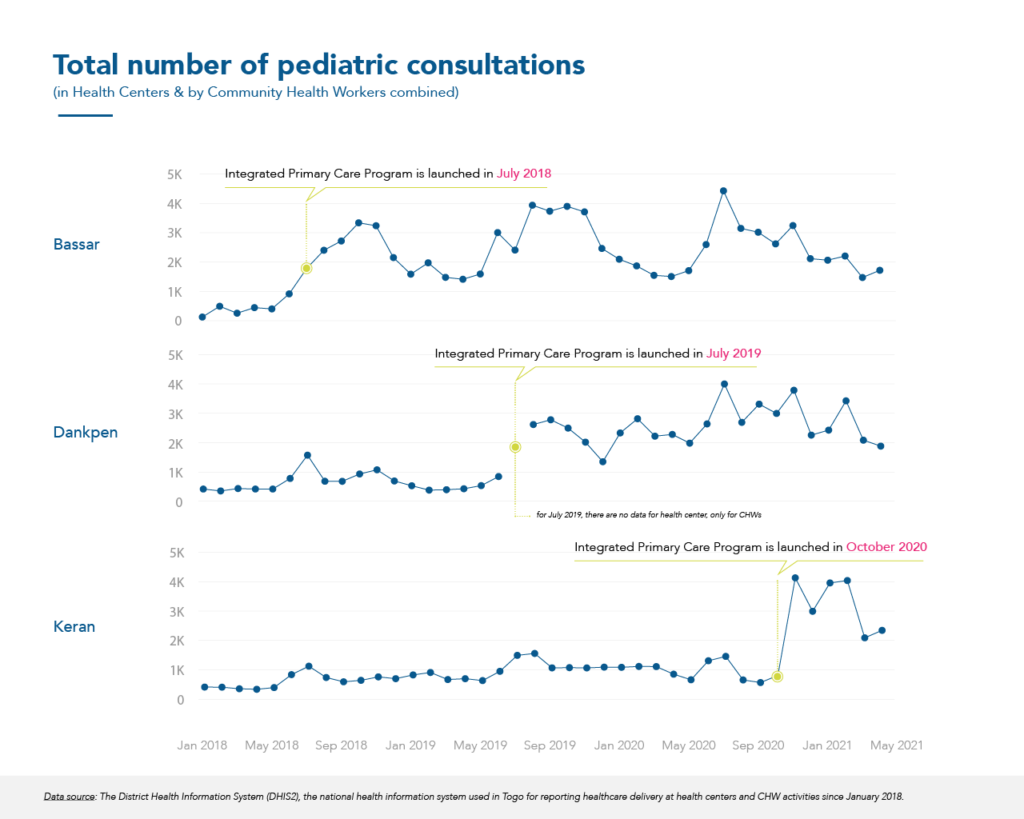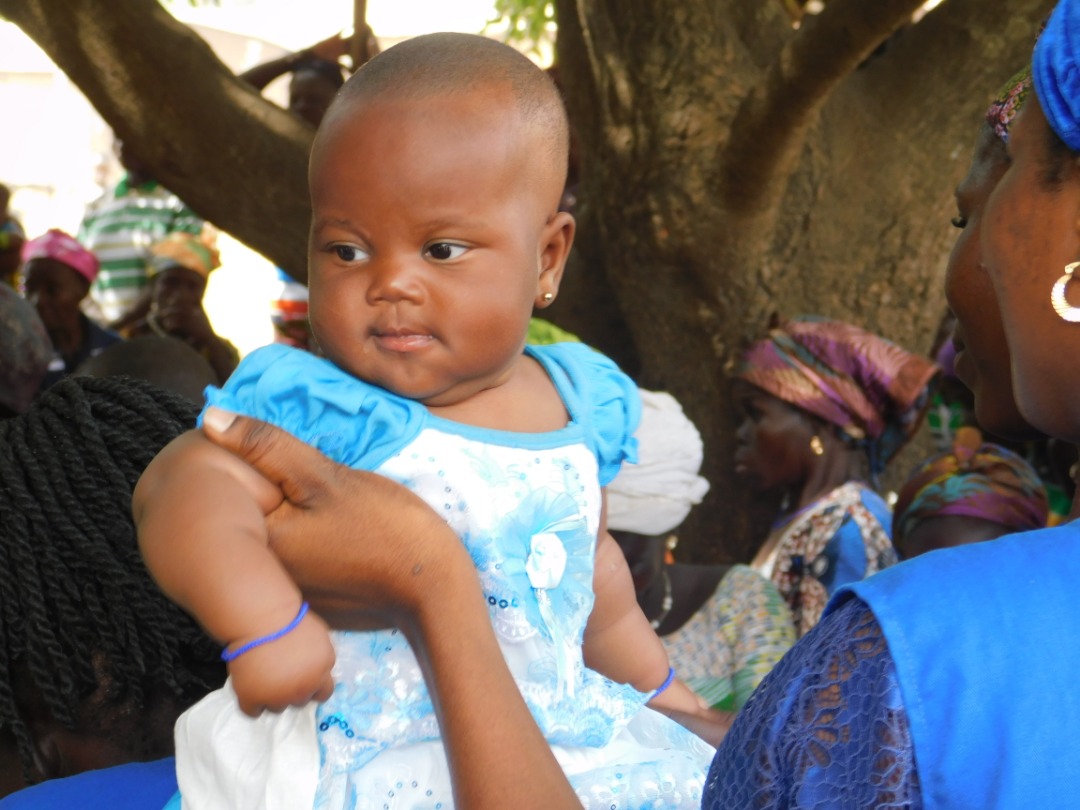Prior to the launch of the Integrated Primary Care Program in districts throughout Northern Togo, community members had few healthcare options. Families were either forced to travel miles to a health center and face high costs of care, turn to other forms of care, such as herbal medicine from a traditional healer, or simply stay home. In turn, healthcare attendance, particularly among women and children, remained low. As a result, mothers and children did not receive timely, quality healthcare, particularly in rural and impoverished areas. Recently, Integrate Health compared health center attendance before and after the launch of the Integrated Primary Care Program and found a large increase.
Each month, Integrate Health’s Monitoring, Evaluation, and Quality Improvement team holds a data review session in which the team highlights important trends that they find in the data. During the meeting, each trend is discussed amongst staff, Community Health Worker supervisors and Clinical Mentors to try to understand the reason for the trend and, if needed, possible interventions to improve the trend.
Since the launch of the Integrated Primary Care Program in the districts of Bassar, Dankpen, and Kéran, the number of consultations at Integrate Health-supported health centers and through Community Health Worker visits has increased significantly. For instance, in Bassar district, the number of pediatric consultations increased from 915 in the June before program launch (2018) to 3,004 in the June following program launch (2019)—a 228% increase. The same pattern was observed in the Dankpen district following the program launch in July 2019. The program in the Kéran district was launched in October 2020, and since then the number of pediatric consultations has grown, and is on track to see the same trend as other districts in the coming months.

Graph 1 (above): total number of pediatric consultations before and after the launch of the Integrated Primary Care Program
These monthly data review sessions are part of Integrate Health’s strategy to capture data for key indicators to inform the quality of care. This is our way of providing staff members, partners, and community members with timely access to data to continuously improve healthcare delivery.
The District Health Information System (DHIS2), the national health information system, has been used in Togo for reporting healthcare delivery at health centers and CHW activities since January 2018. Therefore, the number of pediatric visits at health centers was generally reliably reported prior to program launch. Although this was a descriptive analysis, it is unlikely that changes in reporting or other events in these districts explain the large increases in pediatric consultations following the start of the Integrated Primary Care Program.
These data suggest that Integrate Health’s Integrated Primary Care Program has led to more visits for children under five. The program has improved access to free, quality care so that children can receive regular testing and treatment for malaria, one of the five major childhood diseases in Togo.
Read more about the Integrated Primary Care Program here.

